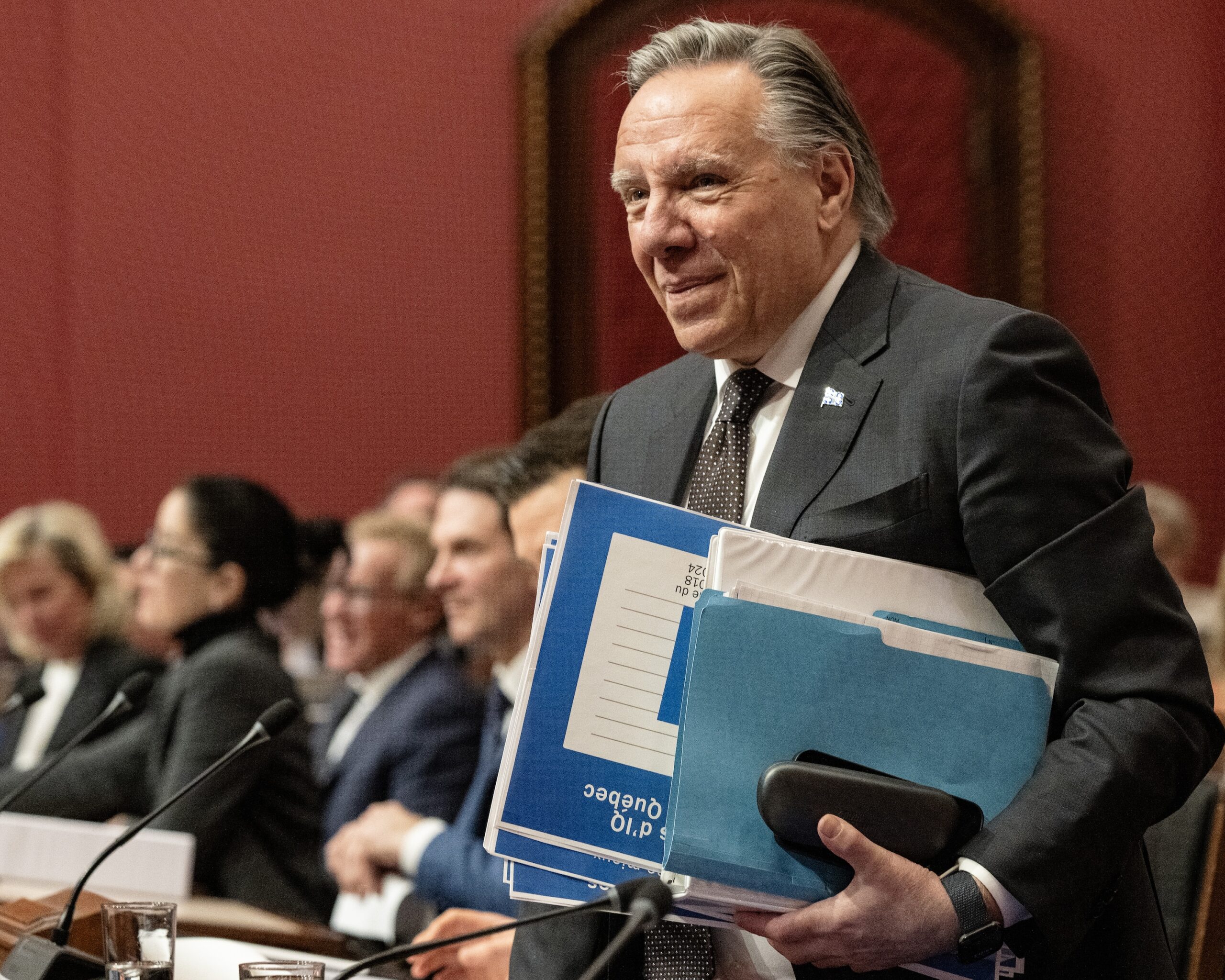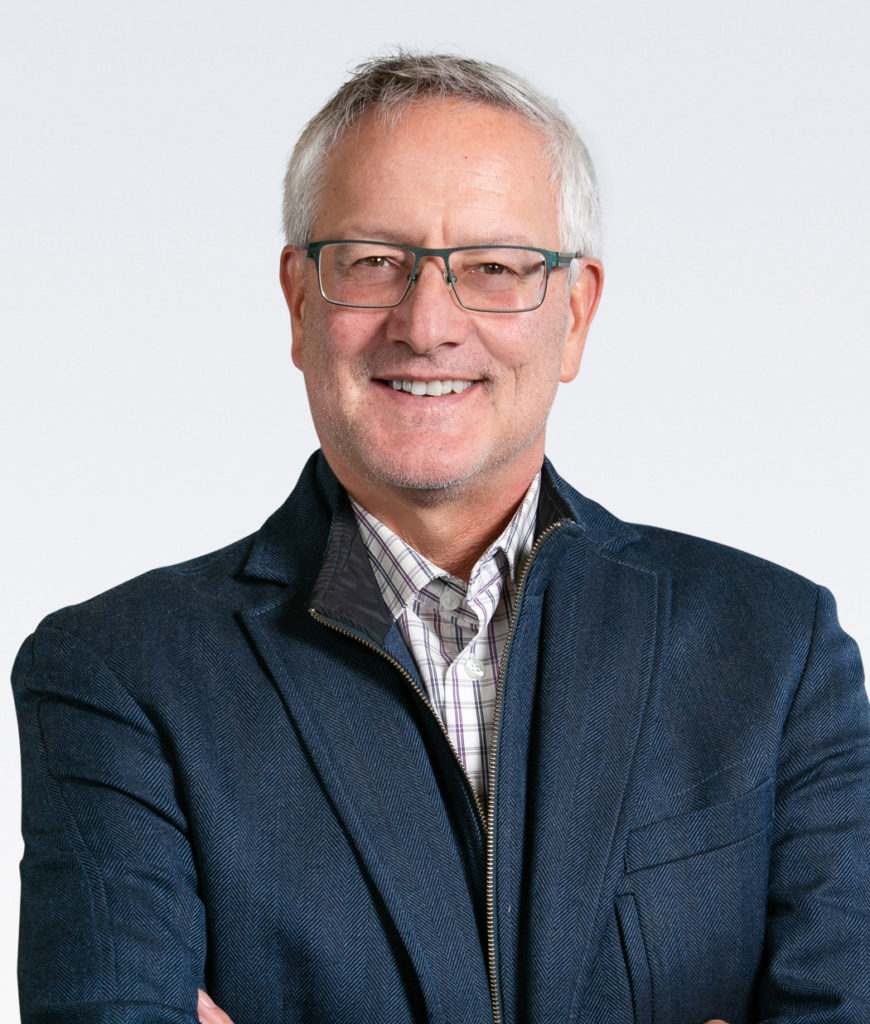Québec’s National Assembly began a new parliamentary session on Tuesday, January 28th, after the annual winter break.
With the Coalition Avenir Québec (CAQ) government now past the midpoint of a tumultuous second majority mandate, Premier François Legault and his team face a new challenge: the threat of tariffs from President Trump. In his first address to the media as part of the new session, Legault emphasized the magnitude of this threat and stated that he, along with Economy, Innovation and Energy Minister Christine Fréchette, will be highly focused on studying the potential impacts of tariffs on Québec’s economy.
To kick off the session, Legault also announced changes to cabinet, appointing Simon Jolin-Barrette as Minister Responsible for Canadian Relations, a portfolio previously held by Immigration Minister Jean-François Roberge. The first major objective in Jolin-Barrette’s mandate will be the creation of a ‘Constitution of Québec’. In his new role, he will work closely with Minister Roberge, particularly on key issues like language, identity and secularism. Legault also asked Sonia Bélanger, current Minister of Seniors, to take on the role of Minister Responsible for the Laurentides in addition to her current duties.
Trade tensions place Québec’s strategic sectors on the line
The threat of tariffs under a potential Trump administration poses a serious risk to Québec’s economy, particularly in strategic sectors like aerospace, life sciences, mining, and manufacturing – all of which have been focal points of the province’s economic development strategy in recent years. In his recent address to the House GOP in Miami, President Trump identified steel, aluminium, copper, computer chips, semiconductors and pharmaceuticals as primary targets for tariffs, in an effort to re-shore manufacturing capacity and production to the United States. The U.S. is Québec’s primary export market, and from their top 10 products destined for American consumers and businesses, the majority are either on Trump’s tariff watchlist or will be highly impacted by isolationist trade policies; this includes: aluminium, copper, and pharmaceutical products and medication. Québec also reports significant exports of non-ferrous metals, light-duty trucks and vehicles, aircrafts and aircraft motors.
In weeks ahead, the CAQ government will continue to map out the economic impacts by sector and region. Premier Legault recently met with representatives from the Québec Federation of Workers and the Fonds FTQ on this topic, and this week he will travel to Saguenay-Lac-Saint-Jean and Côte-Nord – primary regions for the production of aluminium and copper – to speak to locals and industry. Taking his usual Québec-first tone, Legault stated that the government is keeping these regions and strategic sectors in mind as the government evaluates possible retaliatory measures and relief programs. However, in his comments to media Tuesday afternoon, Legault acknowledged the need for a unified Canadian response to the trade tensions with the United States, and he stated that he will continue to engage with his federal and provincial counterparts. He maintained the stance that nothing should be off the table when it comes to retaliatory measures, and raised the idea of modeling the Canadian trade response after Biden’s “Buy American” policies.
Until tariffs are imposed, the Québec government will focus on engagement and diplomacy, with the hope that a deal can be negotiated. In his remarks Tuesday, Legault also emphasized the need for a renegotiation of the USMCA, stating that he and other provincial Premiers have recently observed a decline in the number of foreign investment project proposals. “Uncertainty is more damaging to potential investors”, said the Premier. Another pillar of the government’s efforts will rely on strengthening relations with other countries through existing free-trade agreements. In a written statement to Le Journal de Québec, Minister Fréchette’s office confirmed her participation in last week’s Word Economic Forum meeting in Davos, where Fréchette spent time with European officials and businesses with the intention of portraying Québec as “THE place to develop their business”.
Turmoil surrounds Québec’s ambitious energy reform
The mobilization of business, industry and consumer groups against the Québec government’s energy reform Bill 69 and impending rate hikes has intensified in recent weeks. On Monday, the Alliance for Quebec’s Energy Competitiveness (AQEC) released a joint statement urging the government to reconsider its stance on energy rate increases. Ahead of the return of the legislature, the Canadian Federation of Independent Business voiced similar concerns. Premier Legault stated that his government maintains their commitment to limiting rate increases to 3% for residential users, and 4-5% for industrial users. Legault reiterated to media that even with a 4-5% increase, Québec’s rates are more competitive than those of neighbouring jurisdictions. However, according to the AQEC, the reforms presented in Bill 69 could lead to a 60% increase in costs for large industrial users over the next 10 years.
Progress on the Québec government’s energy reform has been delayed by the uncertainty created by the threat of tariffs, leading Minister Fréchette and the government to undertake a re-evaluation of certain elements of Bill 69 at the end of 2024. There is still work to accomplish in the study of the Bill, and it is expected to reappear on the legislative docket this session. In the meantime, MNAs will proceed with consultations on other pieces of legislation, like Bill 81, which seeks to reduce the time required for environmental authorisations for certain energy transition projects, such as wind and hydroelectric projects – another important element of the government’s economic development and emissions reduction objectives.
Minister Fréchette has acknowledged the issues surrounding some of the key “green”
projects in Quebec, like Northvolt and Lion Electric, which have both faced challenges related to cash flow and layoffs. Nonetheless, she has remained optimistic about the future of Québec’s battery industry. She recently noted that there are still 20 battery projects going ahead in the province, and another 100 engaged in discussions with her ministry.
Budget cuts and primary care mandates set to dominate the health agenda
The Legault government is looking to make progress on its commitment to improving access to primary care in the province. The government recently appointed a group of independent experts tasked with providing recommendations, by March 31, 2025, to shape Québec’s policy on primary care services, which includes the proposal to mandate doctors to practice in the public sector during the early years of their career. The committee will be led by Dr. Élise Boulanger, president of the Québec College of Family Physicians, Dr. Antoine Groulx of Université Laval, and Mylaine Breton of the University of Sherbrooke. As of November 2024, over 630,000 patients were waiting for a family doctor, relying on temporary solutions through the Primary Care Access Portal.
Minister Christian Dubé has set a target for every Quebecer to be enrolled with a primary care provider by summer 2026. However, negotiations with the Federation of General Practitioners of Quebec (FMOQ) are ongoing, with the FMOQ expressing concerns about the government’s approach. Meanwhile, the province’s new centralized health agency, Santé Québec, continues to advance large-scale layoffs across the health sector in accordance with its mandated $1.5 billion in cuts by the end of March 2025.
Off to the races for the PLQ
The leadership race for the Liberal Party of Québec (PLQ) officially launched on January 13th, 2025, and has already seen significant movement. As the race heats up, the new leader is set to be elected on June 19th, 2025.
Denis Coderre, despite tax issues, has resolved his disputes with the Canada Revenue Agency and Revenu Québec, securing a debt settlement. He remains a strong contender, but faces competition from Marc Bélanger, who focuses on economic policy, and Charles Milliard, advocating for job creation.
Meanwhile, Pablo Rodriguez has garnered significant support, including from former contender Frédéric Beauchemin, positioning himself as the frontrunner with a platform focused on economic growth, innovation, and public finances. Beauchemin withdrew from the race on January 13th, 2025, stating that he believes Rodriguez is the only candidate with the experience and ability to unite the Liberal Party of Québec (PLQ).
Polling
The Parti Québécois continues to lead in the polls with 33% of the projected popular vote, while the CAQ remains at 22%. Meanwhile, the Québec Liberal Party has risen to 17% as the party’s leadership race begins, potentially sparking renewed interest among voters.

Premier Legault must announce a by-election in Terrebonne by March 9th, 2025, which has remained unheld since ‘super-minister’ Fitzgibbon’s departure in September 2024. The CAQ has chosen Alex Gagné, the president and founder of À deux pas de la réussite, a nonprofit organization that provides tutoring to children in the Lanaudière region. The PQ nominated Catherine Gentilcore in November, and the other parties have also selected their candidates.
The latest polling data for Terrebonne, as of December 2024, shows the PQ in the lead with 42% support, followed by the CAQ at 26% and the PLQ at 14%. Terrebonne, traditionally a PQ stronghold since the 1970s, was taken over by Fitzgibbon in 2018. This by-election will serve as another challenge for the CAQ, following their last defeat in Jean-Talon.

Looking ahead
With the spring session off to a challenging start amid tariff threats from the Trump administration, which could impact key sectors of Quebec’s economy, addressing these risks is expected to remain a top priority throughout the session. Minister of Finance Éric Girard has warned that this could affect the ability to balance the budget within the five-year deadline. Looking ahead, this will add another layer of complexity to the government’s ongoing priorities, including the re-evaluation of the province’s guidelines on temporary and permanent resident targets, with the guidelines expected by June 2025. Additionally, the Immigration Minister is expected to table a bill on integration this Thursday.
The possibility also remains for broader changes to Premier Legault’s cabinet. Quebec’s Health Minister announced that he will not present in the next election, raising questions around the possibility of appointing a replacement.
Key dates
- June 9 to 14, 2025 – 2025 Québec Liberal Party leadership election
- October 5th, 2026 – Next general election (fixed date)


